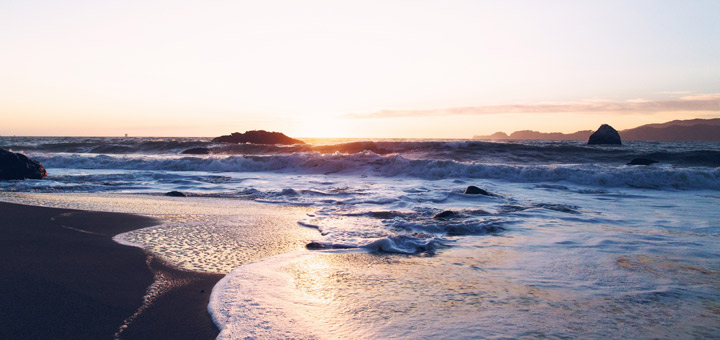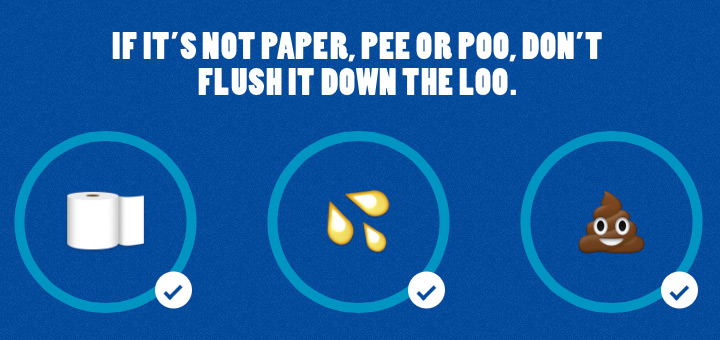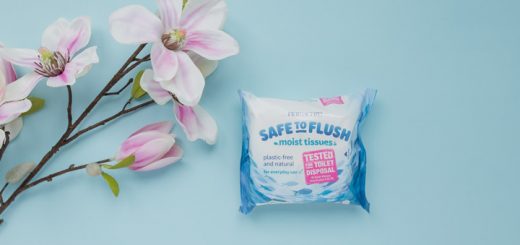
Don’t flush it! Wet wipes, waste and clean beaches
The latest beach survey results from the Marine Conservation Society has revealed nearly 4,000 wet wipes were collected by volunteers during the Great British Beach Clean – a whopping 30% rise on the previous year and a 400% rise within a decade. With an average of 80 wipes for each mile of beach, this a serious ecological problem that is only getting worse. The reason wet wipes are littering our coastline is due to people flushing them down the toilet rather than throwing them in the bin!
UK water companies spend over £81 million on around 400,000 blockages every year, up to 80% of which are caused by wet wipes and their unflushable friends (even cotton buds and nappies!). This leads to more expensive water bills for everyone.
Wouldn’t you prefer to have lower bills, clean beaches and a healthy environment? We have a few tips from our friends at Green People:
Don’t flush it away!
The wet wipes industry is now worth over £500 million in the UK alone. Many actually contain plastic meaning they don’t disintegrate like toilet paper. Used to remove make-up, replace toilet paper and even to apply fake tan, wet wipes that are flushed away rather than binned can cause serious problems for our sewers.
Sewage systems aren’t designed to cope with this type of waste even if the package says ‘biodegradable’ or ‘flushable’, so they can cause blockages, get tangled in machinery and when they are released into the sea they can wash up on beaches. The use of wet wipes is increasing by around 15% each year and this rising trend is putting a serious strain on our sewers, not to mention even killing marine life.
More than 6,000 tons of wet wipes and other sewer blockers made their way into the Southern Water sewer network between April and November 2014 – the equivalent to 2,000 hippos! This massive blockage shows the damage that flushing an innocent-looking wipe down the toilet can do – and that’s just one water treatment plant.
Even when put into the bin, the majority of wipes can still pose an environmental problem as most can’t be recycled or composted – so they sit in landfill sites for a very, very long time without breaking down. Look for biodegradable alternatives like Natracare, but please don’t put them down the loo either!
It’s also not cool to flush your tampons – no, the sewage systems aren’t meant to handle those either! A shocking 60% of us in the UK flush instead of putting them in the bin, but it’s somewhat understandable. Sometimes public or work toilets don’t have disposal/hygiene facilities for women (ask them to provide it!) and we don’t have them at home. Try Fab Little Bag, a new solution to help you discreetly bin feminine products and help the environment. Read more: http://www.ethicalsuperstore.com/blog/environment-2/are-you-a-flusher-or-a-binner/
A few words from Natracare:
“We do not support using your toilet as a ‘wet bin’, because there is often not time for the product to biodegrade before processing is finished. Sewage plants do their best, but as well as sometimes clogging up filters, a few bits inevitably slip through the net, ending up in the sea and floating round there for some time before they have completely degraded. We support the ‘bag and bin it’ campaign and recommend you only flush what you really have to.” For more information visit www.southernwater.co.uk/bag-it-bin-it
The only things that should be flushed down the toilet are the three Ps – pee, poo and paper. For everything else – Bag it and Bin it!

Wipe alternatives
To help reduce the pressure on our sewage systems and to curb the tide of wet wipes washing up on our beautiful British beaches, there are several things you can do:
Baby wipes
If you use wet wipes to clean your child’s often-sticky fingers, Green People has an environmentally-friendly solution that is just as quick, easy and convenient. The Organic Children Sticky Hand Sanitiser is an alcohol-free natural foaming hand wash that doesn’t need any water to give hands a good clean. Simply pump directly onto the hands and rub them together for a quick, foamy wash that cleans grime, germs and dirt.
Antibacterial wipes
Many of us use antibacterial wipes around the house as a convenient way to give surfaces a quick clean. But if after using them you flush them away, they only add to the problem of wet wipe litter. If possible try to use an eco-friendly surface cleanser with reusable cloths, but if you do use wipes remember to put them in the bin.
Self tan wipes
If using wipes to apply self-tan, you can switch! Get a gorgeous streak-free tan with Green People’s award-winning Self Tan Lotion, the UK’s first certified organic self tan – even recommended by the Beauty Director of Harper’s Bazaar Magazine. While using a tanning wipe may be convenient, their Self Tan Lotion is just as easy to apply and delivers streak-free results quickly. Natural DHA derived from sugar gives an amazing, glowing tan that’s better for your skin without damaging the environment.
Lend your support!
Finally – support the brilliant Marine Conservation Society and help them raise awareness! Get out there and help clean beaches, or just spread the word with their petition to wipe out wet wipe monsters.


